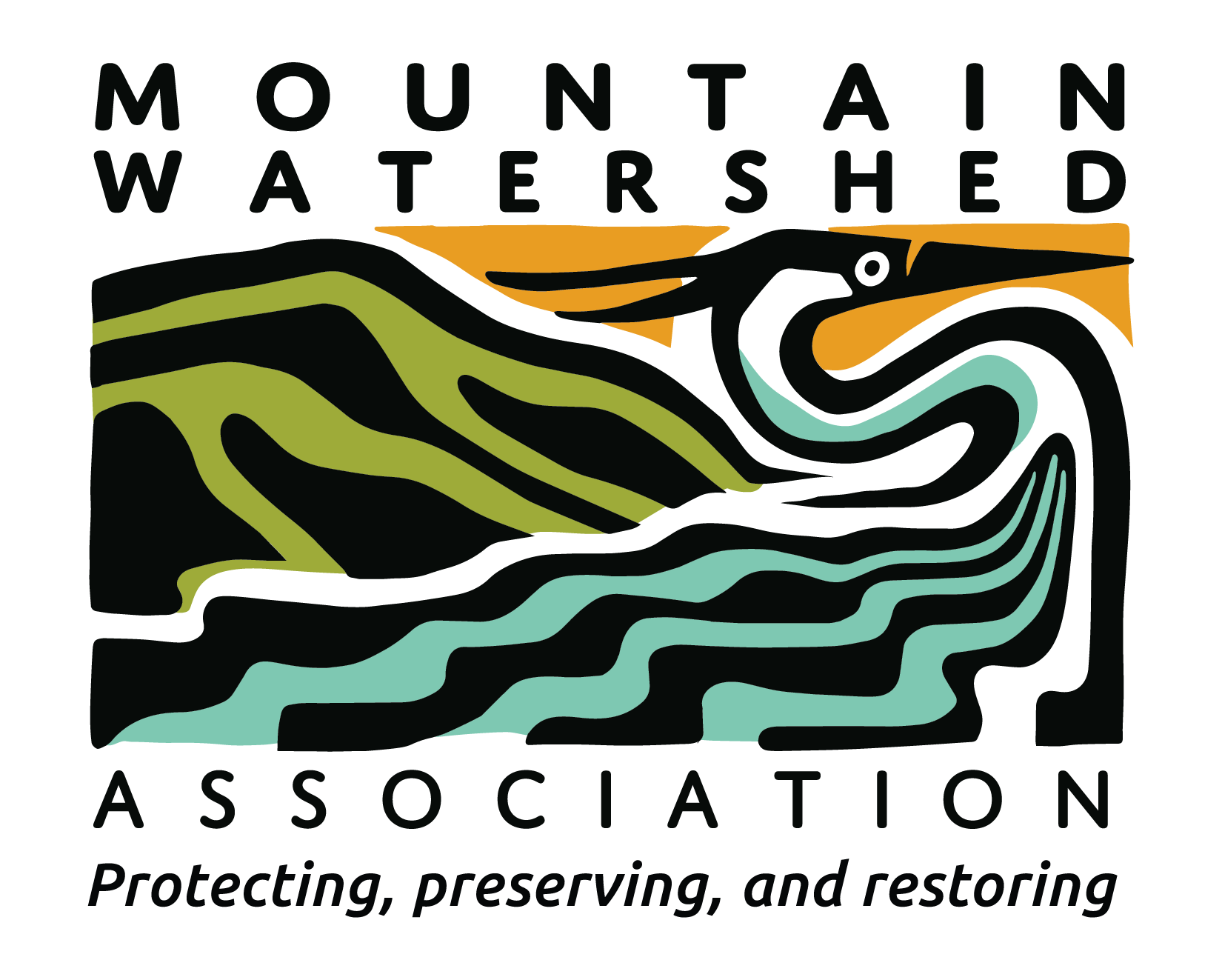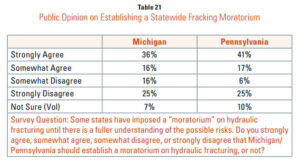“Energy independence.” “Family-sustaining jobs.” “Transition to renewable energy.” – These have been the promises made to residents in shale states like Pennsylvania, Ohio, New York, Maryland, and West Virginia since the ‘fracking boom’ came to the northeastern United States several years ago.
But as time passes, the glimmer of these promises has faded into a starker reality – the jobs are fewer and far more dangerous than imagined – government and industry are gearing up to ship our domestic shale gas supplies overseas – foreign countries like China are buying out large shale lease holdings on American soil – property values are diminished for leased landowners and their neighbors – and in places like the Laurel Highlands, industrial development threatens the tourism and recreation industries that already provide sustainable economies.
Laurel Highlands Economics
A 2006-2008 economic analysis of six “Trail Towns” along the Great Allegheny Passage between Pittsburgh and Cumberland, Maryland showed that these six towns alone produced nearly $41 million in trail attributed revenue, with over $7,500,798 in wages distributed (Campos Inc., 2009, 7) in just two years. Seven Springs Mountain
Resort, in Fayette and Somerset Counties, is the second largest employer in Somerset County (PA Center for Workforce Information and Analysis 2011) and hosts over one million visitors annually. Ohiopyle State Park is located in Fayette County and annually hosts over 1.5 million visitors. A 2008 analysis of the economic impact of Pennsylvania State Parks showed that Ohiopyle visitors spent an estimated $28,044,000 on park visits during that year alone (Department of Recreation, Park and Tourism Management 2010, 48).
Without a comprehensive development plan for the Laurel Highlands, and Pennsylvania in general, our organization and our over 1,100 members share concerns that continuing with “business as usual” will increase impacts we’re already seeing and threaten our sustainable economies.
Cause for ‘Pause’
A recent study by University of Michigan and Muhlenberg College in Allentown, Pennsylvania shows that while 84% of people in Pennsylvania perceive shale gas fracking can improve the state’s economy, overall support for this industrial development is dropping. According to the poll, part of the National Surveys on Energy and the Environment, 58% of Pennsylvanians now agree that PA should establish a moratorium on fracking.
The National Surveys on Energy and Environment Public Opinion on Fracking:
Perspectives from Michigan & Pennsylvania, May 2013, Pg. 19
Add this to the fact that the Pennsylvania Democratic Committee now supports a moratorium on fracking.
So what do we do about all this?
On Thursday, July 11th, MWA’s Marcellus Citizen Stewardship Project is coordinating visits to State Senators offices in Westmoreland and Fayette Counties as part of a statewide effort to support a moratorium, called “Independence from Fracking.” Several national, statewide, and grassroots groups are participating across the state – we’re focusing on Senators Don White (R-41), Kim Ward (R-39), and Richard Kasunic (D-32). Starting at 11am on the 11th, citizens will gather at Senator White’s office in Murrysville, break for lunch, then visit Ward and Kasunic before rounding out the ‘Day of Action’ by celebrating and cooling off at Idlewild Park in Ligonier. Click here for event details.
Why does MWA support a moratorium? Here are a few reasons:
Permits issued for this activity exceed the state’s capacity to adequately protect the environment and public. Mountain Watershed Association recently attended a meeting with heads of Pennsylvania’s Department of Environmental Protection (DEP). At this meeting, one recurring answer to our inquiries about DEP policy and procedures for oil and gas impacts occurring throughout shale-field communities was, ‘We don’t have the capacity (time and budget).’
Unresolved injustice. MWA responds to citizen complaints of impact such as water contamination. Several cases we work on, as well as many others, are still unresolved and citizens are unjustly bearing the burdens created by others. Until an adequate, rapid response system is in place at the state or federal level, we do not support continuing down the same path that has created these impacts and will only continue to create more.
Toxic secrets. The oil and gas industry still enjoys exemptions from our most stringent environmental laws. Operators are still not required by law to disclose the specific contents of the toxic cocktails used for their ‘slickwater, horizontal hydraulic fracturing’ – or “fracking” for short. Without full disclosure of chemicals the public cannot be adequately protected and testing standards for soil, air, water, and food cannot be properly updated.
Unbalanced priorities. There is no comprehensive plan for the full-scale implementation of shale gas infrastructure across Pennsylvania, even though Dr. Terry Engelder of Penn State University (the ‘Godfather’ of the Marcellus Shale’) says himself that shale gas will consume about 50% of PA’s land mass over the course of development. There are no environmental or health impact studies on the effects of shale gas extraction in Pennsylvania. Our state seems to value profits over proactive, principled common sense values. Pushing ‘Pause’ on fracking provides time to assess and adjust.
Please join us Thursday, July 11th at our state senators’ offices. Call Melissa at 724-455-4200 ext. 6# for more info.
Mountain Watershed Association is addressing shale gas impacts in the Indian Creek & Youghiogheny River watersheds and beyond through our Marcellus Citizen Stewardship Project. Please consider becoming a member to support our mission to protect, conserve, and restore water quality in Pennsylvania’s Laurel Highlands region.


